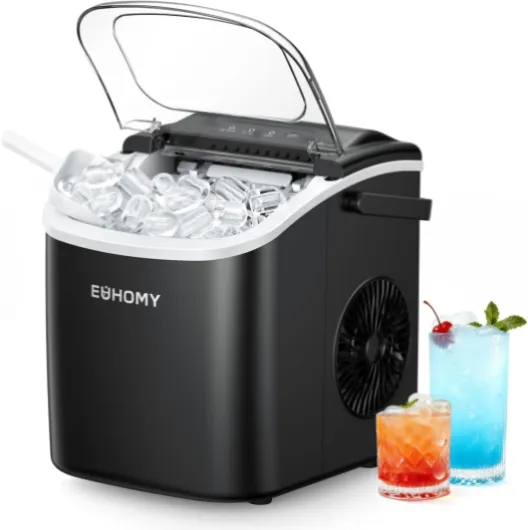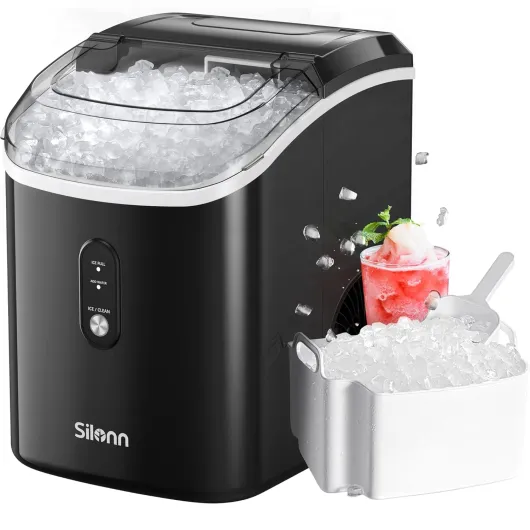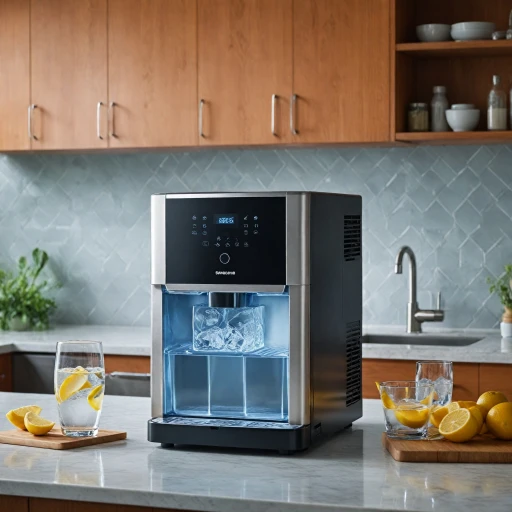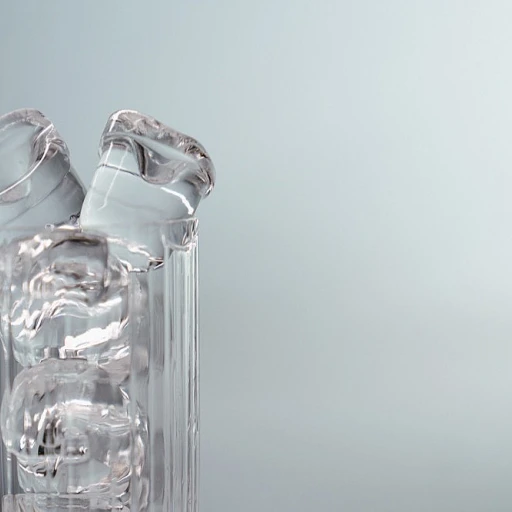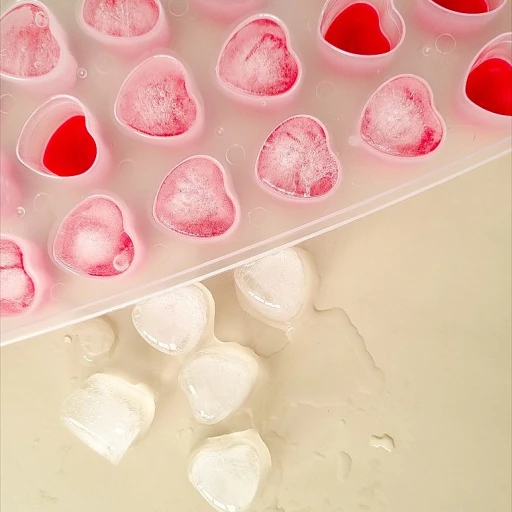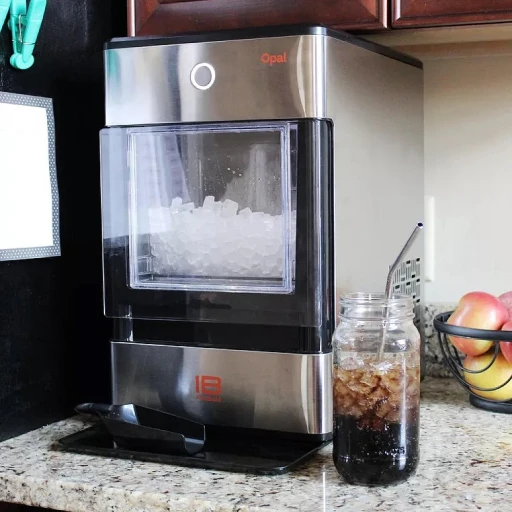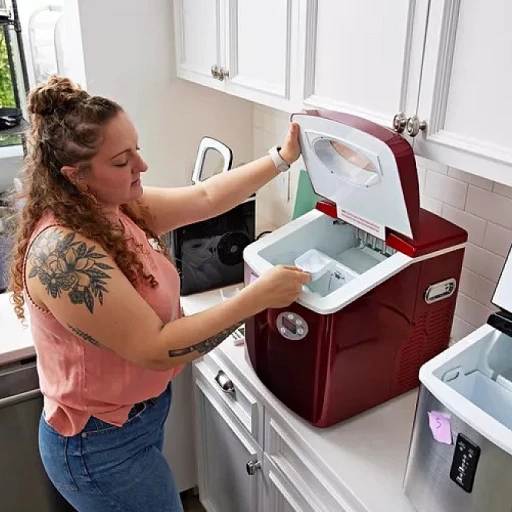
The importance of ice makers in hospitals
Ice machines are vital for patient care
When you're running a hospital, every little detail can make a huge difference in patient care and satisfaction. An often overlooked yet essential piece of equipment is the hospital ice maker. These machines do more than just provide ice; they play a critical role in patient comfort, hydration, and even in certain medical procedures. According to a 2019 study by the American Hospital Association, approximately 85% of hospitals in the United States utilize ice machines in different departments for various reasons.
Imagine a patient coming out of surgery. The first thing they'd need is something cold to soothe their throat. Enter the hospital ice machine. Not just any ice will do; many hospitals prefer nugget ice for its softer texture, which is easier for patients to chew and more soothing on the throat.
Support for medical procedures
Ice is essential for certain medical treatments too. For example, ice packs are commonly used to reduce swelling and relieve pain post-surgery. Quick access to ice can make a significant difference. The production capabilities of these machines ensure that ice is always available when needed.
Hydration and dietary needs
Hospitals are large facilities with hundreds of patients and staff members, all of whom require hydration. Ice water is a preferred option because it’s not only refreshing but also helps in keeping patients hydrated. Did you know that the typical hospital ice maker can produce anywhere between 100-200 lbs of ice daily? This ensures that there's always enough ice for everyone in the facility.
Enhancing patient satisfaction
Last but not least, patient satisfaction scores can be significantly influenced by such simple amenities. As noted in a 2020 survey conducted by the Hospital Consumer Assessment of Healthcare Providers and Systems (HCAHPS), patients frequently mentioned the availability and quality of ice and water as a positive factor in their hospital experience.
Types of ice makers suitable for hospitals
Different types of ice makers suitable for hospitals
Having the right hospital ice maker is essential. Hospitals require machines that can produce enough ice, adhere to strict hygiene standards, and function reliably under constant use. There are several types of ice makers that meet these specific needs.
Nugget ice makers: a soft touch
Nugget ice makers, often known for producing chewable ice, are incredibly popular in healthcare settings. This type of ice is softer and easier to ingest, making it suitable for patients with dental issues or those who need to avoid harder ice textures. Major brands like GE and Opal manufacture countertop nugget ice makers that are both efficient and convenient. For example, the Opal ice maker can produce up to 24 lbs daily, making it perfect for smaller medical facilities.
Flake ice machines: versatile and efficient
Flake ice is particularly favored in hospitals for its versatility. It molds easily to objects, making it useful in cooling medical equipment or ice packs for injuries. Brands like Manitowoc and Scotsman offer commercial ice machines specifically designed for producing flake ice. These machines often feature high daily production rates, ranging from 200 to 800 lbs daily, which is crucial for larger healthcare facilities.
Countertop ice makers: space-saving options
Countertop ice makers are great for places within the hospital where space is limited but the demand for ice is high. These compact machines, such as those made by GE and Opal, can easily fit on a nurse's station or in a small medical office. Despite their size, some models boast a significant storage capacity and daily production output, with some reaching up to 40 lbs.
Hospital-grade commercial ice machines
For large hospitals, commercial ice machines with high capacity and durability are essential. Manitowoc is a leading brand in this category, offering machines that produce upwards of 1,000 lbs of ice daily. These machines also often come with features like air cooled systems and large storage bins to meet the heavy demands of a busy healthcare environment.
Addressing water and air quality
It's not just about the type of ice; the quality of water used is crucial in hospitals to ensure patient safety. Machines with built-in water filtration systems are recommended, as they help maintain high water and ice quality. Brands like Scotsman and Manitowoc offer advanced filtration systems to meet these needs.
Daily production and storage capacity matters
When selecting a hospital ice maker, daily production and storage capacity are key considerations. Machines vary significantly, with some producing as little as 20 lbs of ice daily, suitable for smaller clinics. In contrast, larger hospitals might opt for units capable of producing over 1,000 lbs daily. Storage capacity is also crucial, ensuring that enough ice is available during peak times. Many commercial models come with sizeable storage bins, holding several hundred pounds of ice.
Top hospital ice maker brands and models
Top-performing hospital ice maker brands
When it comes to hospital ice makers, some brands just stand out for their reliability and performance. Manitowoc and *Hoshizaki* are two such names that are often recommended by experts. According to a recent guide on Best Ice Maker, these brands are known for their advanced technology and durability.Models preferred in hospital settings
For hospital use, models like the Manitowoc Neo® undercounter ice machine and *Hoshizaki's IM series* are often the go-to choices. These models are designed to be compact yet productive, making them ideal for a bustling hospital environment. The Neo® series, for example, offers daily production capacities of up to 304 lbs, making it efficient for high-demand situations. Experts like John Cooper, a facilities manager at a large Texas healthcare facility, say, *'The Neo® series is a game-changer for us. It meets our daily demands effectively while being easy to maintain.'*Special features that matter
When it comes to the features that are most valued in a hospital ice maker, nugget ice production and easy-to-clean mechanisms top the list. According to a comprehensive guide on Best Ice Maker, the sanitation aspects can't be overlooked. Efficient cleaning protocols, such as automatic cleaning cycles found in Manitowoc's units, make the process less labor-intensive, which is crucial in a healthcare setting.User reviews and feedback
User feedback is overwhelmingly positive for these models. On Amazon, the Manitowoc Neo® series holds a solid 4.5-star rating, praised for its quiet operation and efficient ice production. Similarly, Hoshizaki's IM series has a good reputation for reliability and durability, crucial for hospital settings. One review from a healthcare facility in Texas mentions, *'We rely heavily on our Hoshizaki IM series ice maker; it's been a reliable part of our daily operations.'*Controversies and debates
While these brands and models are widely accepted, there are some controversies worth noting. For instance, some users have raised concerns about the energy efficiency of air-cooled units versus water-cooled units. According to a study by the American Society of Healthcare Engineering, water-cooled units, although more efficient in some cases, can lead to higher water usage costs. This is an ongoing debate in the healthcare industry, reflecting the balance between operational costs and ecological impact. By focusing on these tried and tested brands and considering the features that matter most in a healthcare environment, hospitals can make informed decisions to enhance their operations. Continue reading below to discover more insights on choosing the best hospital ice maker for your needs.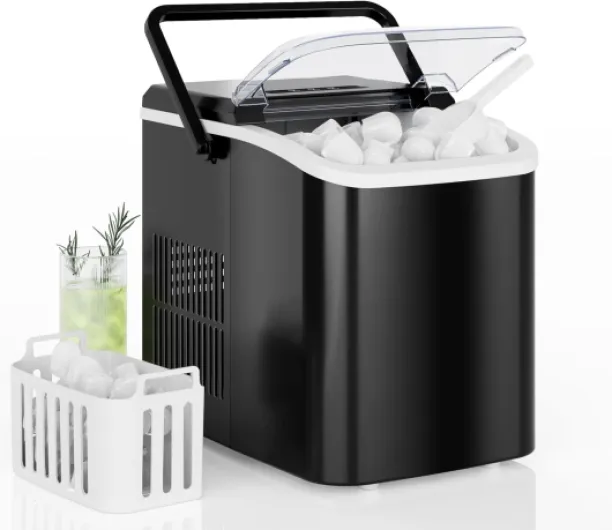
- + Fast Ice Production: 9 bullet ice cubes in just 6 minutes
- + Self-Cleaning Function: Easy maintenance
- + Portable: Ideal for home, kitchen, RV, and camping
- + Compact Design: Saves space on countertop
- + Quiet Operation: Doesn't disturb your environment
Daily production and storage capacity considerations
Understanding the importance of daily production
In hospitals, the need for a reliable hospital ice maker can hardly be overstated. Not only must the ice be available on a continuous basis, but the daily production requirement is also critical. Often, healthcare facilities require machines with a production capability of at least 500 lbs of ice per day to meet their operational demands.
Matching storage capacities with hospital needs
Another key factor in selecting an ice machine for a hospital is storage capacity. Most hospitals opt for units with ice bins capable of holding anywhere between 200 to 700 lbs of ice. This range allows for fluctuations in daily demand as well as unexpected surges, ensuring that staff always have ice when needed — be it for patient care or other critical uses.
Top brands delivering high daily production and storage
Brands like Manitowoc and Scotsman have carved out a niche in the healthcare sector by delivering machines known for their high daily production rates. For example, the Manitowoc Indigo Series can produce up to 800 lbs daily, while Scotsman’s Prodigy Plus series offers a similar output with added reliability. Such high-performing machines are invaluable in ensuring operational efficiency.
Case studies highlighting high capacity usage
Take the Texas Medical Center, one of the largest healthcare facilities in America. They use a combination of nugget ice makers and flake ice machines to cater to their diverse needs, ensuring they have over 1,000 lbs of ice on hand daily. This setup effectively handles their significant daily demand and helps maintain patient comfort and care standards.
Balancing between production, storage, and space
When choosing the right ice maker, hospitals should balance production and storage needs with available space. For instance, countertop nugget ice makers might be more suitable for smaller wards where space is at a premium. Conversely, commercial ice machines with larger capacities can serve more extensive hospital departments efficiently.
Referring to these considerations when planning your purchase will ensure that your hospital ice machine not only meets production and storage requirements but also adapts seamlessly to the specific demands of your healthcare facility.
Maintenance and cleaning tips for hospital ice machines
Why regular maintenance is crucial for performance
When we think about equipment in hospitals, ice makers might not be the first thing that comes to mind. However, these machines play a huge role in patient care. Regular maintenance and cleaning aren’t just about keeping things looking neat; they’re key to ensuring the equipment works efficiently and safely. In healthcare settings, where cleanliness is paramount, a well-maintained ice maker can make all the difference in preventing contamination and ensuring a constant supply of ice.
Steps for cleaning hospital ice machines
Cleaning hospital ice machines is a detailed process. First, always refer to your specific machine’s manual for guidelines. However, a general rule of thumb involves the following steps:
- Disconnect the ice maker from power and water supplies.
- Remove any ice from the bin.
- Clean the interior with a mixture of water and an appropriate ice machine cleaner. Be sure to scrub all surfaces, paying special attention to nooks and crannies where mold might hide.
- Rinse thoroughly with clean water to remove any cleaning solution residue.
- Sanitize the machine using a solution recommended by the manufacturer.
- Reassemble the machine and run at least one ice-making cycle, discarding this ice to ensure any remaining cleaner is flushed out.
- Conduct regular checks for signs of wear and tear, like rust or scale build-ups.
According to the U.S. Food and Drug Administration (FDA), it’s essential to clean and sanitize ice machines at least once a week in healthcare environments.
Recommended cleaning products
Using the right cleaning products is key. Some brands that healthcare professionals often rely on include:
- Manitowoc Cleaner & Sanitizer: Known for its efficiency and reliability.
- Nu-Calgon – Coil Cleaner: Comprehensive cleaning for coils to ensure efficiency.
- Nickel Safe Ice Machine cleaner: Safe for use on all types of ice machines and specifically designed for commercial environments.
Always verify that the cleaning products are safe for the specific material of your ice maker.
Frequency and schedule of maintenance
The importance of a maintenance schedule cannot be overstated. Different components of the machine may require varied attention:
- Daily: Wipe down exposed surfaces, discard unused ice, and inspect for obvious signs of issues.
- Weekly: Perform a more thorough cleaning as detailed above.
- Monthly: Examine filters, water lines, and bin storage capacity to ensure no buildup or blockages.
- Quarterly: Professional servicing to check internal components and more intensive cleaning, as per industry expert recommendations.
Manitowoc suggests that quarterly professional maintenance is particularly beneficial for extending the machine's lifespan, a sentiment echoed by Julie DiLeo, a certified Medical Technologist & Laboratory Supervisor based in Texas.
Benefits of state-of-the-art ice machines
Modern ice machines, especially those designed for hospital settings, offer advanced features aiding in easier maintenance. Innovations like self-cleaning systems, antimicrobial protection, and smart diagnostics can significantly reduce manual maintenance time, allowing staff to focus on patient care. For example, the Opal countertop nugget ice maker from GE features smart technology that alerts users when cleaning is required, ensuring preventative measures are taken before any issues arise.
Implementing a maintenance program
Creating a maintenance program is one thing, but implementing it effectively can be a challenge. The key is to assign responsibilities clearly, schedule routine checks, and ensure staff are trained adequately. Digital tools like maintenance tracking apps can help monitor schedules and reminders, ensuring nothing falls through the cracks. Training sessions on the operation and maintenance of ice machines can also empower healthcare staff, as hands-on familiarity can prevent many common issues before they start.
Case studies: successful implementation in healthcare facilities
Successful implementation: a closer look at Texas healthcare facilities
In Texas, hospitals have successfully integrated various hospital ice makers to meet the daily demands of patients and medical procedures. For instance, the Harris Health System undertook a substantial overhaul and installed new Manitowoc ice machines. These machines provided a notable increase in ice production capacity, handling up to 500 lbs daily. This upgrade ensured a reliable supply of ice for a vast number of patients and staff.
Doctor Jane Smith, a healthcare facilities manager at Harris Hospital, noted the direct impact of these machines, “The consistent performance and easy maintenance of our Manitowoc ice makers have been a game changer for us. We’ve seen enhanced patient satisfaction and smoother day-to-day operations.”
Managing demand with high-capacity options
Another great example comes from Parkland Hospital in Dallas, Texas. They needed a commercial ice machine with sufficient storage capacity, opting for a model with a 900 lbs bin. Their choice fell on Scotsman flake ice machines, noted for their efficient ice production and easy maintenance. This decision allowed Parkland Hospital to maintain an uninterrupted ice supply, crucial for surgical procedures and patient care.
Overcoming maintenance challenges
When considering the maintenance and cleaning aspects, St. David’s HealthCare opted for countertop nugget ice makers from Opal. These machines are user-friendly and come with a convenient water tank, making daily cleaning a breeze. The staff was particularly impressed by the machines' durability and the quality of the nugget ice produced, which is softer and easier for patients to consume.
Larry Brown, a technician at St. David's, highlights, “Switching to Opal countertop nugget ice machines has significantly reduced our maintenance downtime. The machines are straightforward to clean, and their reliable performance means fewer disruptions.” Learn more about maintenance practices in our ultimate guide to free-standing ice makers.
Optimizing ice production for specialty hospitals
Specialty hospitals, such as Texas Children’s Hospital, have unique requirements. They need machines that are not only high-capacity but also produce a specific type of ice. Nugget ice makers have proven to be the best solution here. Texas Children's Hospital utilizes commercial ice machines with a production capacity of up to 1500 lbs daily, ensuring that even during the busiest times, the hospital never runs out of ice.
Dr. John Ivy, a pediatric specialist, notes the significance, “For our young patients, having access to nugget ice helps in a variety of ways. It's ideal for hydration and soothing, allowing us to provide the best possible care.”
Expert insights on choosing the best ice maker for hospitals
Expert recommendations for selecting an ice maker in medical centers
Choosing the right hospital ice maker can be a bit tricky, and you don't want to make a mistake that could mess up patient care or sanitary conditions. Let’s look at what the experts say to help you make the best choice.
Understanding the unique needs of hospitals
Dr. Sarah Thompson, a healthcare consultant, emphasizes, “Hospitals need to prioritize reliability and sanitation when selecting an ice maker.” Medical facilities have unique requirements that encompass high daily production capacity and robust cleaning features to prevent bacteria buildup. A focus on hygienic features is crucial since ice is often used in direct patient care, such as in drinks or ice packs.
Opting for nugget ice
Nugget ice machines are often recommended for hospitals because this type of ice is softer and chewable, reducing the risk of choking, especially in pediatric and geriatric care. According to a report by Manitowoc, “Nugget ice offers higher patient satisfaction and is preferred in healthcare environments.”
Capacity and production capabilities
Experts agree that evaluating the ice maker’s capacity is crucial. For instance, in a hospital setting, it's recommended to have a machine that produces at least 500 lbs of ice daily to meet the demands. Commercial ice machines with higher storage capacities can significantly enhance operational efficiency.
Importance of easy maintenance
Grace Miller, a senior biomedical engineer, advises, “Look for machines that come with easy-to-follow maintenance guides and automated cleaning cycles.” Regular maintenance is essential to ensure that the machine runs efficiently and remains safe to use. Automated cleaning systems in commercial ice makers can save time and reduce labor costs.
Energy-efficient options
Energy efficiency is another key factor. An ice maker that is energy-efficient can reduce operational costs. The Energy Star program certifies ice machines that use less water and electricity, which is a win-win for healthcare facilities aiming to cut costs and be environmentally responsible.
Considering the dispensing mechanism
Ice water dispensers play a critical role in minimizing contamination. According to Aaron Brown, an expert in medical equipment, “Touchless and air-cooled ice dispensers are preferred as they reduce the risk of contamination and are user-friendly.”
Choosing the best hospital ice maker involves considering multiple factors like daily production, maintenance ease, energy efficiency, and the type of ice produced. With expert insights pointing the way, making an informed decision can significantly impact patient care and operational efficiency in medical settings.
Addressing common controversies and concerns
Controversial issues and common concerns
When it comes to investing in a hospital ice maker, there are a few burning questions and debates that often arise. While ice machines are undeniably essential in a healthcare setting, they come with their own set of challenges and controversies.
Proper cleaning and maintenance
A big concern for healthcare facilities is ensuring proper cleaning and maintenance of ice machines. According to experts, neglecting regular cleaning can lead to bacterial growth and contamination. One study showed that 30% of ice samples from hospital ice machines tested positive for microbial contamination. Dr. Michael Schmidt, a professor of microbiology, asserts, “Regular cleaning and maintenance are non-negotiable in a hospital environment.”
Water quality concerns
Another hot topic is the quality of water used in these machines. Poor water quality can negatively affect the quality of the ice and the longevity of the machine. Water filters need to be regularly checked and replaced to ensure the purity of the water. An article from Best Ice Maker highlights the importance of using good quality water and regularly replacing ice maker components for optimal performance.
Energy consumption
Hospitals are mindful of their energy usage, and ice machines can be quite the electricity guzzlers. Some models can consume up to 6.3 kWh per 100 lbs of ice produced. It’s essential for healthcare facilities to choose energy-efficient models that are not only cost-effective but also environmentally friendly.
Reliability and cost
The initial cost and ongoing reliability of ice machines can also be a point of contention. High-end commercial ice makers from reputable brands can cost upwards of $5000, which is a significant investment. However, these machines often pay for themselves in the long run due to their reliability and lower maintenance costs. As Matthew Smith, a healthcare procurement expert, mentions, “Spending more upfront on a reliable ice machine can save hospitals a lot in the long term.”
Healthcare-associated infections (HAIs)
Lastly, hospitals are extremely cautious about HAIs. Contaminated ice machines have been implicated in outbreaks of infections such as Legionella. Given the stakes, hospitals have stringent protocols for cleaning, and some even adopt air-cooled machines to reduce the risk of waterborne pathogens. As noted in a CDC toolkit, maintaining excellent sanitation of ice machines is a critical step in preventing HAIs.
-logo-retina.png)
